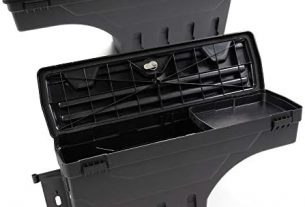As the manufacturing industry continues to grow, there is an increasing demand for precision and accuracy. The use of Computer Numerical Control (CNC) machines has revolutionized the manufacturing process, making it more efficient and accurate. However, the success of CNC machining depends on the skills of the operator and the quality of the tools used. This is where a CNC tool setter comes in.
A CNC tool setter is a highly skilled professional responsible for setting up and maintaining CNC machines’ cutting tools. They ensure that the tools are correctly aligned, calibrated, and ready to produce precise results. In this article, we will explore the essential role of a CNC tool setter and what it takes to become one.
[h2]What Does a CNC Tool Setter Do?[/h2]
The primary responsibility of a CNC tool setter is to ensure that the cutting tools used in CNC machines are set up correctly. They work with a variety of cutting tools, including drills, end mills, taps, reamers, and other specialized tools designed for specific applications. The tool setter must be familiar with each type of tool and know how to select the right one for each job.
Once the tool has been selected, the CNC tool setter must mount it on the machine’s spindle accurately. They then adjust various settings such as speed, feed rate, depth of cut, and coolant flow to ensure optimal performance. The tool setter uses precision measuring instruments such as micrometers and dial indicators to make sure that everything is aligned correctly.
Another critical role played by a CNC tool setter is maintaining the cutting tools’ condition. They inspect them regularly for wear and damage and replace them when necessary. This ensures that they remain sharp and produce high-quality parts consistently.
[h2]Skills Required to Be a CNC Tool Setter[/h2]
Becoming a CNC tool setter requires specific skills and knowledge. These include:
[h3]1. Mechanical Aptitude[/h3]
A CNC tool setter must have a good understanding of how machines work and be mechanically inclined. They should be able to read technical drawings and use various measuring tools accurately.
[h3]2. Attention to Detail[/h3]
The job of a CNC tool setter requires meticulous attention to detail. They must ensure that every aspect of the job is done correctly, from selecting the right tool to setting up the machine and adjusting the settings.
[h3]3. Problem-Solving Skills[/h3]
When things go wrong during the machining process, the CNC tool setter must be able to troubleshoot and find solutions quickly. This requires analytical thinking, creativity, and resourcefulness.
[h3]4. Communication Skills[/h3]
A CNC tool setter must work closely with other members of the manufacturing team, including machinists, programmers, and engineers. Effective communication skills are essential to ensure that everyone is on the same page and that the job is done correctly.
[h2]How to Become a CNC Tool Setter[/h2]
Becoming a CNC tool setter typically requires a combination of education and on-the-job training. Here are the steps you can take to become one:
[h3]1. Get a High School Diploma or Equivalent[/h3]
Most employers require at least a high school diploma or equivalent for entry-level positions.
[h3]2. Complete a Vocational or Technical Program[/h3]
Many vocational schools offer programs in precision machining that cover topics such as blueprint reading, shop math, and machine maintenance.
[h3]3. Gain On-the-Job Training[/h3]
Most CNC tool setters learn their skills through on-the-job training. They start as entry-level machinists and work their way up by learning from experienced colleagues.
[h3]4. Obtain Certifications[/h3]
Certifications such as those offered by the National Institute for Metalworking Skills (NIMS) can demonstrate proficiency in CNC machining and increase job opportunities.
[h2]Conclusion[/h2]
In conclusion, a CNC tool setter is an essential member of any precision manufacturing team. They play a critical role in ensuring that CNC machines produce high-quality parts consistently. Becoming a CNC tool setter requires specific skills, including mechanical aptitude, attention to detail, problem-solving skills, and communication skills. With the right education, training, and certifications, anyone can become a skilled CNC tool setter and enjoy a rewarding career in precision manufacturing.
Wiki Reference: https://en.wikipedia.org/wiki/Computer_numerical_control




